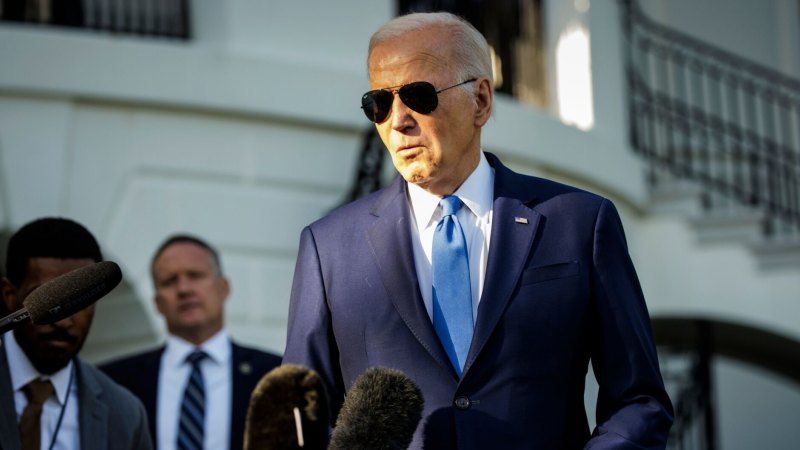McCarthy says he believes US Congress can pass debt deal by June 5
Save articles for later
Add articles to your saved list and come back to them any time.
United States House Speaker Kevin McCarthy said negotiators still must resolve remaining issues in a deal to avert a catastrophic US debt default, but he believes negotiators can meet a June 5 deadline.
McCarthy signalled that he’s had to give in to at least some Democratic demands but said he’s not “fearful” of what is in the emerging agreement. He touted that it cuts “runaway spending,” a core GOP demand in exchange for lifting the country’s borrowing limit.
US President Joe Biden, before heading to Camp David, remains in touch with his negotiators on the debt ceiling.Credit: Bloomberg
“Not everyone will like what’s in the agreement,” McCarthy told reporters at the Capitol on Saturday morning. “We will get there when we get it right,” he added.
Later, McCarthy, carrying a bag of Chipotle into the Capitol, said he was uncertain the two sides would reach a deal on Saturday.
US President Joe Biden remains in touch with his negotiators from the Camp David presidential retreat in Maryland and is vetting the offers and counteroffers, according to a person familiar with the negotiations.
Negotiators for McCarthy and Biden worked into the night to try to resolve the threat of a default, which Treasury Secretary Janet Yellen says could happen June 5.
Republican Patrick McHenry, one of McCarthy’s negotiators, said it was a “severe challenge” to pass a bill before that X-date, adding there were still some “thorny issues” between House Republicans and the White House.
“It’s hours or days, I don’t know when,” McHenry said earlier on Saturday. There is a “very short list” of differences that remain, he added.
If a default did occur, economists project it could send the US into a recession, with widespread job losses and higher consumer borrowing costs spilling into the coming election year.
“The current stand-off over the US debt ceiling has the potential to wreak more havoc on the economy than any previous go-around,” wrote Bloomberg Economics chief US economist Anna Wong.
US House of Representatives Speaker Kevin McCarthy says not everyone will like what’s in the agreement.Credit: Bloomberg
While negotiators continue to haggle, Treasury’s cash balance is dwindling rapidly. It fell to $US38.8 billion ($60 billion) as of Thursday, the lowest since 2017, according to data published on Friday.
McCarthy has pledged to abide by a 72-hour rule to allow lawmakers to review the text before a vote. McHenry said Republicans were not budging on that.
That rule, combined with procedural hurdles in the Senate, risk pushing Congress right up to the June 5 deadline.
Work requirements for anti-poverty programs — pushed by Republicans and opposed by Democrats — were among the remaining sticking points on Friday night.
On Saturday, McHenry said the “interplay of all the issues”, which include spending caps and the length of any debt deal, means “nothing” is truly solved.
Any deal, McHenry added, must show a trend of lower federal spending over multiple years.
McCarthy also said the potential deal still includes changes to permitting regulations for energy and other projects. People familiar with the talks have said it could ease environmental reviews for fossil fuel projects — a key GOP objective — in exchange for a bill boosting electric-transmission capacity desired by Democrats.
Bloomberg
The Business Briefing newsletter delivers major stories, exclusive coverage and expert opinion. Sign up to get it every weekday morning.
Most Viewed in Business
From our partners
Source: Read Full Article



